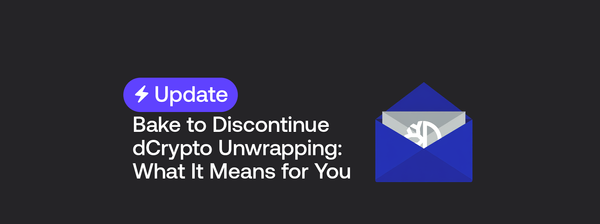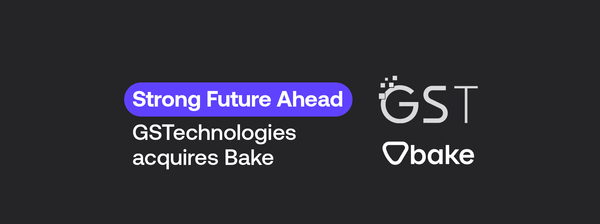How Cardano Is Empowering Farmers in Africa With Blockchain Technology
A revolution has taken root at the heart of the fertile soil that lines the landscape of Africa. This revolution isn’t driven by your usual tractors and plows. Instead, blockchain technology is at the helm, leading the African continent toward a brighter agricultural future.
This is all thanks to Cardano, a research-oriented blockchain network. Cardano utilizes a combination of smart contracts, digital identities, and tokens to give local farmers access to crucial financial services, improve their productivity, and connect them with other farmers and consumers.
This article will walk you through how Cardano leverages blockchain technology to transform agriculture and empower African farmers and rural communities.
The Agriculture Challenge in Africa
Before we delve into Cardano's role, it's crucial to understand the challenges that African farmers face. Agriculture forms the backbone of Africa’s economy, accounting for roughly 35% of its GDP and over 50% of its labor force.
Despite agriculture’s importance to Africa’s economy, the industry faces many challenges that limit its potential and threaten its future. Some of these challenges include:
- Climate change: Africa is one of the most vulnerable regions to the impacts of climate change. The region is especially susceptible to droughts, floods, pests, and diseases. Such challenges to African agriculture reduce crop yields, increase food insecurity, and increase poverty rates.
- Technology and education: African farmers don’t readily adopt modern agricultural technologies and practices. They thus lack reliable and verifiable information about their crops, land, inputs, outputs, and markets. This makes it difficult for them to optimize their production, access finance and insurance, and comply with quality standards and regulations. As a result, Africa records the lowest agricultural productivity in the world.
- Financing: Africa has a huge financing gap for its agricultural sector, receiving just 4% of the global agricultural credit and 2% of the global agricultural insurance. This limits the ability of farmers to invest in equipment, infrastructure, and innovation to improve their productivity and profitability.
- Policy: Many African nations are hampered by land tenure insecurity, trade barriers, market distortions, and government corruption. Intermediaries also often exploit farmers by charging high fees, manipulating prices, or providing low-quality products or services.
- Infrastructure: Africa’s agriculture infrastructure, which includes roads, storage facilities, processing plants, and communication networks, is underdeveloped. This hinders farmers’ access to local, regional, and global markets.
These challenges combine to threaten the African continent’s food security, its people’s livelihoods, and the development of millions of farmers. There is an urgent need for innovative solutions that can address these challenges and unlock the potential of agriculture in Africa.
This is where Cardano steps in. Cardano presents itself as a beacon of change for Africa’s agriculture industry. By tapping into the efficiency, scalability, and sustainability of blockchain technology, Cardano aims to revolutionize Africa’s agriculture industry and improve the lives of Africans throughout the continent.
What Is Cardano, and Why Is It Different?
Cardano is a decentralized proof-of-stake (PoS) blockchain network that aims to provide a secure and scalable infrastructure for building smart contracts, decentralized applications, and digital identities.
Cardano stands out for its research-oriented approach. Its development team uses cutting-edge technology and academic research to design and improve an energy-efficient, interoperable, and adaptable blockchain.
Spearheading Cardano’s research efforts is IOHK (Input Output Hong Kong), one of the world’s leading blockchain infrastructure research and engineering companies. IOHK has deep expertise in Cardano’s development, serving as the principal driver of the platform.
To achieve greater scalability, security, and flexibility, Cardano is split into two layers: the Cardano Settlement Layer (CSL) and the Cardano Computation Layer (CCL). While the CSL handles transactions of ADA, the native cryptocurrency of Cardano, the CCL executes smart contracts and hosts Cardano’s native decentralized applications (dApps).
Furthermore, Cardano is built on democratic principles, adopting a novel consensus mechanism called Ouroboros. This PoS protocol enables ADA holders to participate in validating transactions and securing the network. It’s also designed to be environmentally friendly, using much less computing power than proof-of-work (PoW) blockchains.
Given Cardano’s suite of advanced features that prioritize scalability, security, and fairness, it is well-positioned to ignite Africa’s agricultural revolution.
How Is Cardano Empowering Farmers in Africa?
According to Cardano’s co-founder Charles Hoskinson, the blockchain’s goal is to create a “financial operating system” for Africa. His vision is for Cardano to provide millions of people access to digital identity, banking, insurance, credit, and other services that are currently unavailable or inaccessible to them.
As mentioned earlier, one of the main challenges African farmers face is the lack of reliable and verifiable information about their crops, land, inputs, outputs, and markets. They’re also subject to the management of corrupted intermediaries, who exploit them by charging high fees, manipulating prices, or providing low-quality products or services.
To solve these problems, Cardano aims to use its blockchain technology to create a transparent and traceable system for recording and sharing data across the agricultural value chain.
By using smart contracts, digital identities, and tokens, Cardano enables farmers to:
1. Prove Their Ownership and Identity
Farmers can use Cardano’s Atala PRISM solution to create a digital identity that links them to their land titles, crop records, certifications, and other relevant information. By proving their ownership and identity to authorities, lenders, insurers, and buyers, farmers are better able to protect themselves from fraud or theft.
2. Access Finance and Insurance
Farmers can use Cardano’s Marlowe solution to create smart contracts that facilitate peer-to-peer lending and borrowing without intermediaries or collateral.
They can deploy Cardano’s Catalyst solution to access grants or subsidies from governments or non-governmental organizations (NGOs) that support agricultural development.
Farmers can also make use of Ergo, a PoW blockchain that is compatible with Cardano, to access index-based insurance that can protect them from weather-related risks or crop failures.
3. Improve Their Productivity and Sustainability
Farmers can use Cardano’s Plutus solution to create smart contracts that automate farming operations, such as irrigation, fertilization, or harvesting.
They can use Cardano’s Symphony 2.0 solution to integrate data that monitors soil conditions, crop health, and environmental impact.
In order to obtain affordable Internet connectivity, farmers can utilize Cardano’s World Mobile solution. A reliable Internet connection will go a long way in helping farmers gain access to crucial online education or extension services.
4. Connect With Markets and Consumers
Farmers can use Cardano’s Native Assets solution to create tokens that represent their crops or products. They can then use these tokens to trade directly with buyers or consumers on Cardano’s decentralized exchange or marketplace platforms.
They can also use Cardano’s Metadata solution to attach information such as origin, quality, or certification to their tokens. This can help them increase their market access, bargaining power, and customer loyalty.
Cardano’s Related Projects in Africa
Cardano has already launched several projects in Africa that demonstrate its potential to impact the agricultural sector.
Some of these projects include:
1. Partnership With the Ethiopian Government
Cardano partnered with the Ethiopian government to transform the education system using its blockchain technology. As part of the deal, students across Ethiopia are given a digital identity that tracks their academic performance. This can help them access better opportunities for employment or further education.
With many students hailing from rural areas or farming backgrounds, the uptick in education will benefit the agricultural sector. Apart from finding gainful employment or higher education opportunities, these students can use their digital identities to access services or incentives that can support their agricultural activities.
2. Partnership With World Mobile
In Tanzania, Cardano partnered with World Mobile to provide internet access and digital identities to rural communities. As part of the deal, World Mobile will use solar-powered base stations and mesh networks to deliver affordable and reliable connectivity to remote areas.
Users will also be given a digital identity that gives them access to various services on the Cardano blockchain. This can help users improve their livelihoods, especially in the agricultural sector, by giving them access to information, markets, finance, insurance, and other benefits.
As of August 2023, this partnership has led to the launch of a multipurpose global mobile app that supports money transfers and peer-to-peer payments in five African countries. However, blockchain-specific features like the Cardano non-custodial wallet and fiat on-ramp capabilities are disabled in Tanzania due to differing regulatory stances.
3. Partnership With Rwanda
Over in Rwanda, Cardano is exploring the use of blockchain technology for social good through its partnership with Save the Children, one of the world’s biggest humanitarian organizations.
Through this partnership, a special payment gateway was built to support the use of ADA for crypto donations to Rwanda’s Save the Children division.
The partnership also enabled the use of ADA to reward local farmers who participate in Save the Children’s projects, such as planting trees or improving soil quality. This can help them increase their income and contribute to environmental sustainability.
What Are the Future Prospects of Cardano in Africa?
Cardano has a long-term vision for expanding its presence and impact in Africa. According to Hoskinson, Cardano plans to work with more countries, sectors, and partners in the continent with the aim to onboard 100 million users by 2024.
Cardano also plans to leverage its blockchain technology to address some of the most pressing matters in Africa, such as:
- Financial inclusion: Cardano aims to provide a more accessible and inclusive financial system for millions of people who are unbanked or underbanked in Africa. Through its blockchain technology, Cardano allows them to create digital wallets, send and receive payments, store and exchange value, access credit and savings, and participate in the global economy.
- Digital transformation: Cardano aims to support the digital transformation of health, education, energy, trade, and governance within Africa. Cardano can be used to create digital records, identities, assets, and contracts that will improve their efficiency, transparency, and accountability in these sectors.
- Innovation and entrepreneurship: Cardano aims to foster a culture of innovation and entrepreneurship in Africa. Local developers, entrepreneurs, and innovators can use Cardano’s technology to create solutions that address their needs and aspirations. Cardano can give them access to funding, resources, networks, and markets that can help them scale their impact.
Cardano Will Revolutionize Farming in Africa
Cardano is empowering farmers in Africa with its innovative solutions. Farmers can prove their ownership, access finance and insurance, improve their productivity, and connect with consumers — all thanks to Cardano.
Cardano has already launched several projects in Africa that demonstrate its potential impact on the agricultural sector. The project has a long-term vision for expanding its presence and impact in Africa and aims to address some of the most pressing challenges in the continent.
Ready to begin your Cardano journey? Head over to Bake and check out the Next-Gen Blockchain Innovators Smart Bundle.

DISCLAIMER: Please note that the information on this blog and in any articles posted on this blog is for general information only and should not be relied upon as financial advice. Cake Pte. Ltd., Bake, UAB, and its affiliates (the “Cake Group”) are not licensed financial advisers. You may wish to approach your own independent financial advisor before making any decision to buy, sell, or hold any product and/or digital assets mentioned in this blog.




